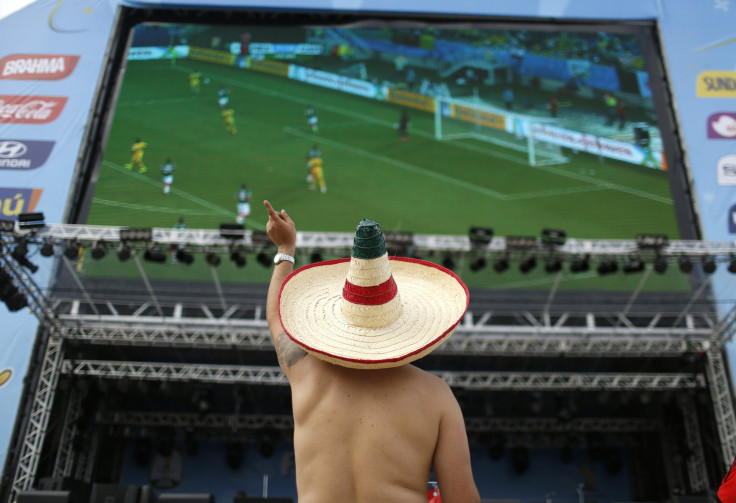FIFA World Cup 2014: Television Coverage Of First Matches Breaks TV Viewing Records

The first group matches of the 2014 World Cup in Brazil have broken television-viewing records across nations, according to FIFA.
Television coverage for one of the most popular competitions around the world set new records in nations such as Brazil, Japan, Germany, the UK, Argentina, France, the Netherlands, Croatia and Italy. The viewership figures in the U.S., Canada and Australia also saw record-high numbers. ESPN reportedly set a new record in the U.S. with the match between the U.S. and Ghana on June 16, which was watched by 11.1 million.
“These record-breaking figures show just how popular football and the FIFA World Cup is across the world, from Japan to Argentina,” Niclas Ericson, director of FIFA TV, said in a statement.
“We are seeing highly encouraging growth in interest in markets such as the United States and Australia.
The biggest sports broadcast was during the match between Brazil and Croatia with about 42.9 million viewership for the host country’s channel TV Globo. The match was on June 12 with Brazil winning 3-1.
As many as 34.1 watched Japan play Ivory Coast on NHK, Japan's public broadcaster, the match in which the Ivorians defeated the East Asian country’s team 2-1.
England’s opening match, which saw the team being defeated 2-1 by Italy in the Amazon city of Manaus, attracted 14.2 million on BBC 1 in the UK and 12.8 million on RAI 1, Italy's national public-service broadcaster. The figures marked the largest TV audiences in both the countries in 2014.
Germany’s 4-0 win over Portugal on June 16 reached 26.4 million on Germany's ARD, giving the broadcasting service its largest TV sports audience in 2014.
“The FIFA broadcast production of all World Cup matches makes this competition truly global and accessible for fans all over the world. It therefore plays a crucial role in supporting FIFA’s core mission to develop football everywhere, and for all,” Ericson said.
© Copyright IBTimes 2025. All rights reserved.





















